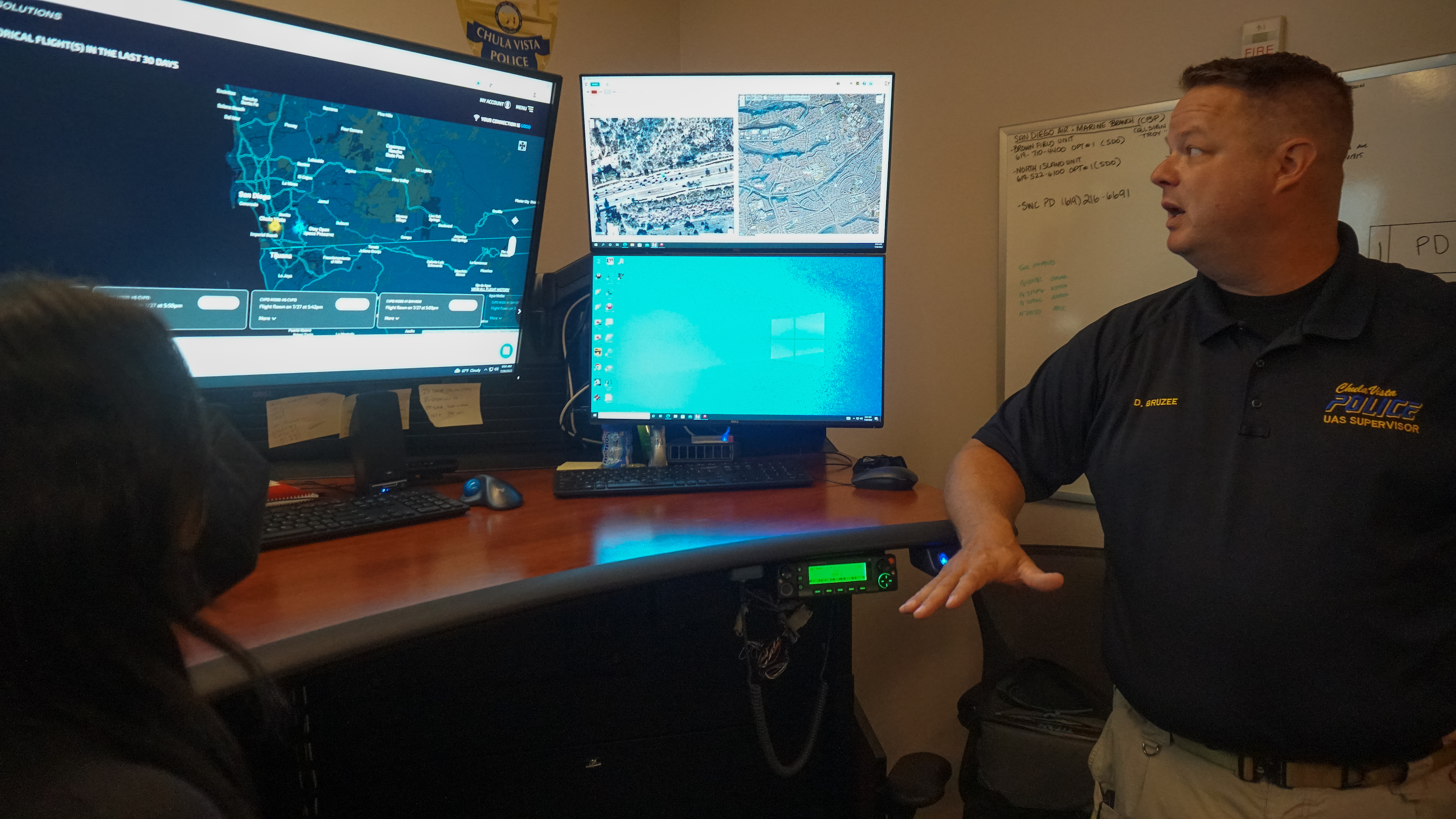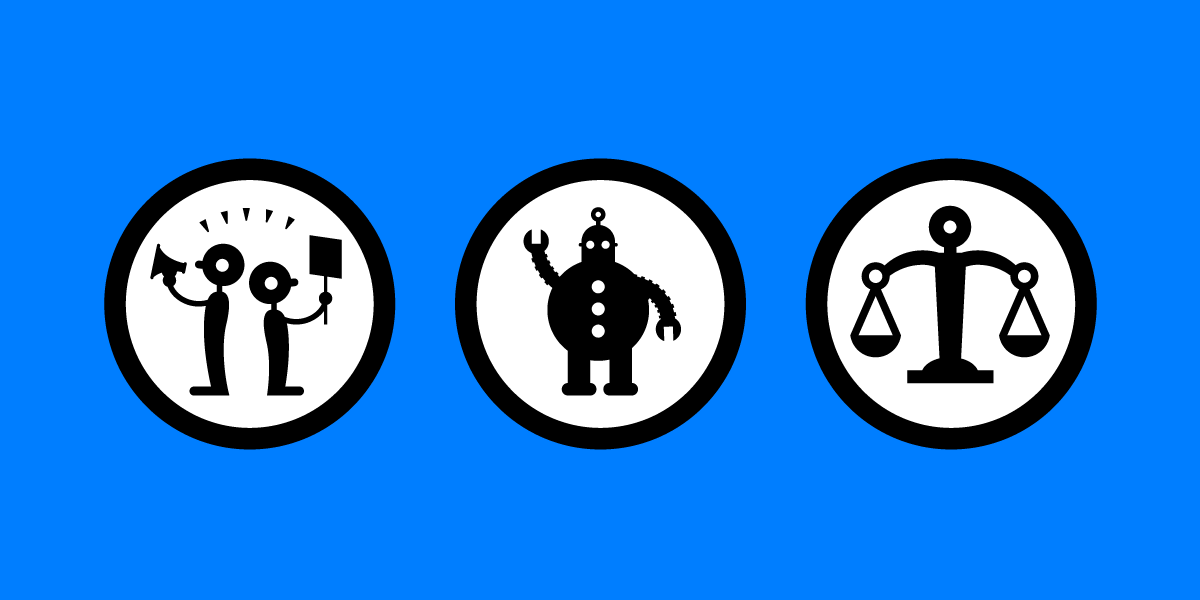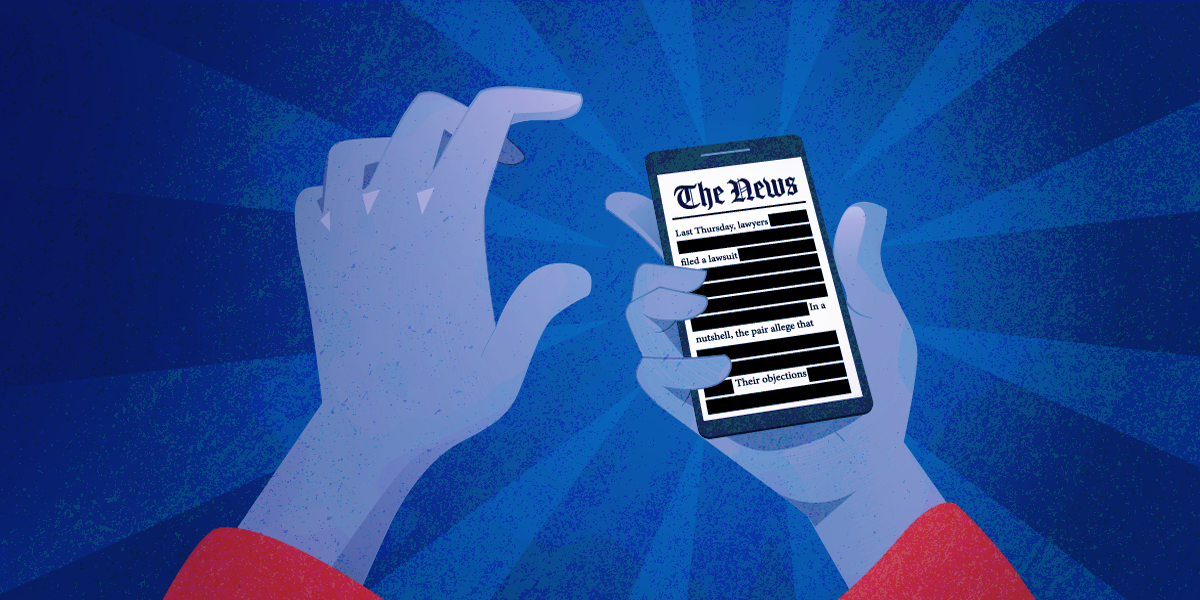A global increase in anti-LGBTQ+ intolerance is having a significant impact on digital rights. As we wrote last year, censorship of LGBTQ+ websites and online content is on the rise. For many LGBTQ+ individuals the world over, the internet can be a safer space for exploring identity, finding community, and seeking support. But with anti-LGBTQ+ bills restricting free expression and privacy to content moderation decisions that disproportionately impact LGBTQ+ users, digital spaces that used to seem like safe havens are, for many, no longer so.
EFF's mission is to ensure that technology supports freedom, justice, and innovation for all people of the world, and that includes LGBTQ+ communities, which all too often face threats, censorship, and other risks when they go online. This Pride month—and the rest of the year—we’re highlighting some of those risks, and what we’re doing to help change online spaces for the better.
Worsening threats in the Americas
In the United States, where EFF is headquartered, recent gains in rights have been followed by an uptick in intolerance that has led to legislative efforts, mostly at the state level. In 2024 alone, 523 anti-LGBTQ+ bills have been proposed by state legislatures, many of which restrict freedom of expression. In addition to these bills, a drive in mostly conservative areas to ban books in school libraries—many of which contain LGBTQ themes—is creating an environment in which queer youth feel even more marginalized.
At the national level, an effort to protect children from online harms—the Kids Online Safety Act (KOSA)—risks alienating young people, particularly those from marginalized communities, by restricting their access to certain content on social media. EFF spoke with young people about KOSA, and found that many are concerned that they will lose access to help, education, friendship, and a sense of belonging that they have found online. At a time when many young people have just come out of several years of isolation during the pandemic and reliance on online communities for support, restricting their access could have devastating consequences.
TAKE ACTION
TELL CONGRESS: OPPOSE THE KIDS ONLINE SAFETY ACT
Similarly, age-verification bills being put forth by state legislatures often seek to prevent access to material deemed harmful to minors. If passed, these measures would restrict access to vital content, including education and resources that LGBTQ+ youth without local support often rely upon. These bills often contain vague and subjective definitions of “harm” and are all too often another strategy in the broader attack on free expression that includes book bans, censorship of reproductive health information, and attacks on LGBTQ+ youth.
Moving south of the border, in much of South and Central America, legal progress has been made with respect to rights, but violence against LGBTQ+ people is particularly high, and that violence often has online elements to it. In the Caribbean, where a number of countries have strict anti-LGBTQ+ laws on the books often stepping from the colonial era, online spaces can be risky and those who express their identities in them often face bullying and doxxing, which can lead to physical harm.
In many other places throughout the world, the situation is even worse. While LGBTQ+ rights have progressed considerably over the past decade in a number of democracies, the sense of freedom and ease that these hard-won freedoms created for many are suffering serious setbacks. And in more authoritarian countries where the internet may have once been a lifeline, crackdowns on expression have coincided with increases in user growth and often explicitly target LGBTQ+ speech.
In Europe, anti-LGBTQ+ violence at a record high
In recent years, legislative efforts aimed at curtailing LGBTQ+ rights have gained momentum in several European countries, largely the result of a rise in right-wing populism and conservatism. In Hungary, for instance, the Orban government has enacted laws that restrict LGBTQ+ rights under the guise of protecting children. In 2021, the country passed a law banning the portrayal or promotion of LGBTQ+ content to minors. In response, the European Commission launched legal cases against Hungary—as well as some regions in Poland—over LGBTQ+ discrimination, with Commission President Ursula von der Leyen labeling the law as "a shame" and asserting that it clearly discriminates against people based on their sexual orientation, contravening the EU's core values of equality and human dignity.
In Russia, the government has implemented severe restrictions on LGBTQ+ content online. A law initially passed in 2013 banning the promotion of “non-traditional sexual relations” among minors was expanded in 2022 to apply to individuals of all ages, further criminalizing LGBTQ+ content. The law prohibits the mention or display of LGBTQ+ relationships in advertising, books, media, films, and on online platforms, and has created a hostile online environment. Media outlets that break the law can be fined or shut down by the government, while foreigners who break the law can be expelled from the country.
Among the first victims of the amended law were seven migrant sex workers—all trans women—from Central Asia who were fined and deported in 2023 after they published their profiles on a dating website. Also in 2023, six online streaming platforms were penalised for airing movies with LGBTQ-related scenes. The films included “Bridget Jones: The Edge of Reason”, “Green Book”, and the Italian film “Perfect Strangers.”
Across the continent, as anti-LGBTQ+ violence is at a record high, queer communities are often the target of online threats. A 2022 report by the European Digital Media Observatory reported a significant increase in online disinformation campaigns targeting LGBTQ+ communities, which often frame them as threats to traditional family values.
Across Africa, LGBTQ+ rights under threat
In 30 of the 54 countries on the African continent, homosexuality is prohibited. Nevertheless, there is a growing movement to decriminalize LGBTQ+ identities and push toward achieving greater rights and equality. As in many places, the internet often serves as a safer space for community and organizing, and has therefore become a target for governments seeking to crack down on LGBTQ+ people.
In Tanzania, for instance, where consensual same-sex acts are prohibited under the country’s colonial-era Penal Code, authorities have increased digital censorship against LGBTQ+ content, blocking websites and social media platforms that provide support and information to the LGBTQ+ community .This crackdown is making it increasingly difficult for people to find safe spaces online. As a result of these restrictions, many online groups used by the LGBTQ+ community for networking and support have been forced to disband, driving individuals to riskier public spaces to meet and socialize.
In other countries across the continent, officials are weaponizing legal systems to crack down on LGBTQ+ people and their expression. According to Access Now, a proposed law in Kenya, the Family Protection Bill, seeks to ban a variety of actions, including public displays of affection, engagement in activities that seek to change public opinion on LGBTQ+ issues, and the use of the internet, media, social media platforms, and electronic devices to “promote homosexuality.” Furthermore, the prohibited acts would fall under the country’s Computer Misuse and Cybercrimes Act of 2018, giving law enforcement the power to monitor and intercept private communications during investigations, as provided by Section 36 of the National Intelligence Service Act, 2012.
A draconian law passed in Uganda in 2023, the Anti-Homosexuality Act, introduced capital punishment for certain acts, while allowing for life imprisonment for others. The law further imposes a 20-year prison sentence for people convicted of “promoting homosexuality,” which includes the publication of LGBTQ+ content, as well as “the use of electronic devices such as the internet, mobile phones or films for the purpose of homosexuality or promoting homosexuality.”
In Ghana, if passed, the anti-LGBTQ+ Promotion of Proper Human Sexual Rights and Ghanaian Family Values Bill would introduce prison sentences for those who engage in LGBTQ+ sexual acts as well as those who promote LGBTQ+ rights. As we’ve previously written, ban all speech and activity on and offline that even remotely supports LGBTQ+ rights. Though the bill passed through parliament in March, he won’t sign the bill until the country’s Supreme Court rules on its constitutionality.
And in Egypt and Tunisia, authorities have integrated technology into their policing of LGBTQ+ people, according to a 2023 Human Rights Watch report. In Tunisia, where homosexuality is punishable by up to three years in prison, online harassment and doxxing are common, threatening the safety of LGBTQ+ individuals. Human Rights Watch has documented cases in which social media users, including alleged police officers, have publicly harassed activists, resulting in offline harm.
Egyptian security forces often monitor online LGBTQ+ activity and have used social media platforms as well as Grindr to target and arrest individuals. Although same-sex relations are not explicitly banned by law in the country, authorities use various morality provisions to effectively criminalize homosexual relations. More recently, prosecutors have utilized cybercrime and online morality laws to pursue harsher sentences.
In Asia, Cybercrime laws threaten expression
LGBTQ+ rights in Asia vary widely. While homosexual relations are legal in a majority of countries, they are strictly banned in twenty, and same-sex marriage is only legal in three—Taiwan, Nepal, and Thailand. Online threats are also varied, ranging from harassment and self-censorship to the censoring of LGBTQ+ content—such as in Indonesia, Iran, China, Saudi Arabia, the UAE, and Malaysia, among other nations—as well as legal restrictions with often harsh penalties.
The use of cybercrime provisions to target LGBTQ+ expression is on the rise in a number of countries, particularly in the MENA region. In Jordan, the Cybercrime Law of 2023, passed last August, imposes restrictions on freedom of expression, particularly for LGBTQ+ individuals. Articles 13 and 14 of the law impose penalties for producing, distributing, or consuming “pornographic activities or works” and for using information networks to “facilitate, promote, incite, assist, or exhort prostitution and debauchery, or seduce another person, or expose public morals.” Jordan follows in the footsteps of neighboring Egypt, which instituted a similar law in 2018.
The LGBTQ+ movement in Bangladesh is impacted by the Cyber Security Act, quietly passed in 2023. Several provisions of the Act can be used to target LGBTQ+ sites; Section 8 enables the government to shut down websites, while section 42 grants law enforcement agencies the power to search and seize a person’s hardware, social media accounts, and documents, both online and offline, without a warrant. And section 25 criminalizes published contents that tarnish the image or reputation of the country.
The online struggle is global
In addition to national-level restrictions, LGBTQ+ individuals often face content suppression on social media platforms. While some of this occurs as the result of government requests, much of it is actually due to platforms’ own policies and practices. A recent GLAAD case study points to specific instances where content promoting or discussing LGBTQ+ issues is disproportionately flagged and removed, compared to non-LGBTQ+ content. The GLAAD Social Media Safety Index also provides numerous examples where platforms inconsistently enforce their policies. For instance, posts that feature LGBTQ+ couples or transgender individuals are sometimes taken down for alleged policy violations, while similar content featuring heterosexual or cisgender individuals remains untouched. This inconsistency suggests a bias in content moderation that EFF has previously documented and leads to the erasure of LGBTQ+ voices in online spaces.
Likewise, the community now faces threats at the global level, in the form of the impending UN Cybercrime Convention, currently in negotiations. As we’ve written, the Convention would expand cross-border surveillance powers, enabling nations to potentially exploit these powers to probe acts they controversially label as crimes based on subjective moral judgements rather than universal standards. This could jeopardize vulnerable groups, including the LGBTQ+ community.
EFF is pushing back to ensure that the Cybercrime Treaty's scope must be narrow, and human rights safeguards must be a priority. You can read our written and oral interventions and follow our Deeplinks Blog for updates. Earlier this year, along with Access Now, we also submitted comment to the U.N. Independent Expert on protection against violence and discrimination based on sexual orientation and gender identity (IE SOGI) to inform the Independent Expert’s thematic report presented to the U.N. Human Rights Council at its fifty-sixth session.
But just as the struggle for LGBTQ+ rights and recognition is global, so too is the struggle for a safer and freer internet. EFF works year round to highlight that struggle and to ensure LGBTQ+ rights are protected online. We collaborate with allies around the world, and work to ensure that both states and companies protect and respect the rights of LGBTQ+ communities worldwide.
We also want to help LGBTQ+ communities stay safer online. As part of our Surveillance Self-Defense project, we offer a number of guides for safer online communications, including a guide specifically for LGBTQ+ youth.
EFF believes in preserving an internet that is free for everyone. While there are numerous harms online as in the offline world, digital spaces are often a lifeline for queer youth, particularly those living in repressive environments. The freedom of discovery, the sense of community, and the access to information that the internet has provided for so many over the years must be preserved.































